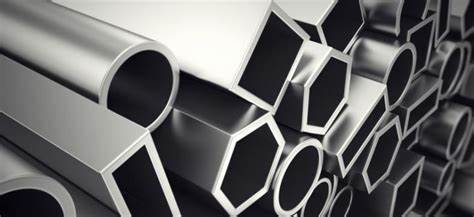
Comparison of 7075-T6 aluminum vs. 7075-T62 aluminum.
Introduction:
7075 aluminum is a popular high-strength alloy used in various applications, including aerospace, military, and sporting goods. There are different variants of this alloy, including 7075-T6 and 7075-T62. Both of these alloys have similar chemical compositions, but there are some key differences in their properties and performance, particularly when used in extrusion applications. In this article, we will compare 7075-T6 aluminum vs. 7075-T62 aluminum in the context of extrusion to help you understand the differences between the two alloys and how they perform in this specific application.
Aluminum extrusion is a process in which a material, such as aluminum, is forced through a die to create a desired shape or profile. The properties of the aluminum alloy used in the extrusion process are critical to the performance of the finished product. Let’s take a closer look at how 7075-T6 and 7075-T62 aluminum compare in terms of their extrusion properties. You can also find information about 7075 T6 extrusion, which will help you better understand it.
Comparison of 7075-T6 aluminum vs. 7075-T62 aluminum.
Chemical Composition:
Both 7075-T6 and 7075-T62 aluminum alloys have the same chemical composition. The primary elements in these alloys are aluminum, zinc, magnesium, and copper. However, the T6 and T62 designations refer to the heat treatment process used to create these alloys, which results in different material properties.
Heat Treatment:
The primary difference between 7075-T6 and 7075-T62 aluminum is in the heat treatment process used to create the two alloys. 7075-T6 aluminum undergoes a solution heat treatment followed by artificial aging. The solution heat treatment involves heating the alloy to a high temperature, quenching it in water or other cooling media, and then artificially aging it at room temperature. This process results in an alloy that has a combination of high strength and good toughness.
On the other hand, 7075-T62 aluminum undergoes a solution heat treatment followed by a natural aging process. The solution heat treatment is the same as for 7075-T6, but the natural aging process involves leaving the alloy at room temperature for a longer period than the artificial aging process used for 7075-T6. This results in an alloy that has slightly lower strength but better resistance to stress corrosion cracking.
Mechanical Properties:
7075-T6 and 7075-T62 aluminum alloys have similar mechanical properties, but there are some key differences. Here are some of the properties that differ between the two alloys:
Tensile Strength: 7075-T6 aluminum has a tensile strength of 83 ksi, while 7075-T62 aluminum has a tensile strength of 73 ksi. This means that 7075-T6 aluminum is stronger and can withstand higher stresses than 7075-T62 aluminum.
Yield Strength:
The yield strength of 7075-T6 aluminum is 73 ksi, while the yield strength of 7075-T62 aluminum is 63 ksi. This means that 7075-T6 aluminum has a higher yield strength and can withstand more stress before it begins to deform.
Elongation:
7075-T6 aluminum has an elongation of 11%, while 7075-T62 aluminum has an elongation of 12%. This means that 7075-T62 aluminum is slightly more ductile than 7075-T6 aluminum.
Fatigue Strength:
The fatigue strength of 7075-T6 aluminum is 40 ksi, while the fatigue strength of 7075-T62 aluminum is 37 ksi. This means that 7075-T6 aluminum is more resistant to fatigue than 7075-T62 aluminum.
Corrosion Resistance:
7075 aluminum alloys are not known for their corrosion resistance. They are susceptible to stress corrosion cracking, especially in environments that contain chloride ions. However, the natural aging process used to create 7075-T62 aluminum can improve its resistance to stress corrosion cracking compared to 7075-T6 aluminum. This makes 7075-T62 aluminum a better choice for applications that require good resistance to stress corrosion cracking.
Conclusion:
In conclusion, the aluminum alloys 7075-T6 and 7075-T62 share a similar chemical composition; however, the heat treatment process used to create them is different, which results in the two having very different material properties. Aluminum with a grade of 7075-T6 has a higher strength and can withstand greater stresses, but aluminum with a grade of 7075-T62 has a slightly lower strength but a higher resistance to stress corrosion cracking. In applications that require good resistance to stress corrosion cracking, 7075-T62 aluminum is preferred over 6061-T6 aluminum. Both alloys are commonly used in aerospace, military, and sporting goods applications; however, 6061-T6 aluminum is preferred in aerospace applications. The cost of the two alloys is comparable, so selecting one over the other will be determined by the particular specifications needed for the application. In addition, if you have any questions about aluminum, you might want to look into aluminum extrusion for more information.







